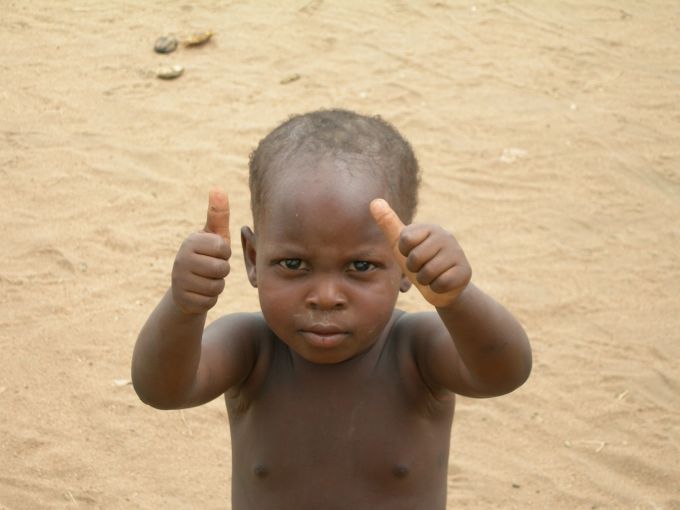About this entry
You're currently reading "Malawi" an entry on Kate Turkington
- Published:
- 15.05.14 / 11am
- Category:
- Travel
Malawi
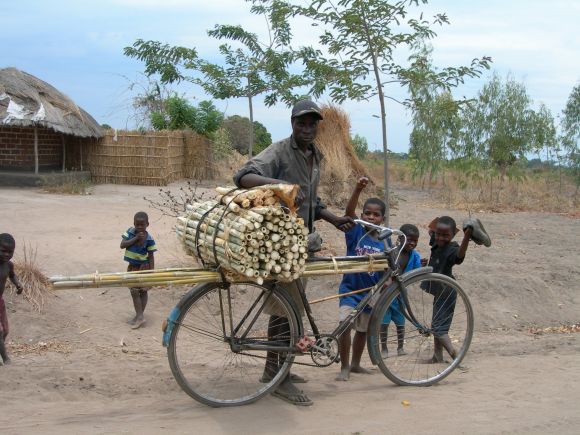
Bamboo for sale
I was on my way to Mvuu Lodge, a small tented camp run by Wilderness Safaris on the banks of a lagoon just off the Shire River on the western boundary of Malawi’s wildlife-rich Liwonde National Park.
The River Shire (pronounced Shirra) is huge, certainly on a par with its better known neighbour, the Zambezi, which the Shire joins before entering the Indian Ocean in neighbouring Mozambique.
I drove to Mvuu from Blantyre, in Malawi’s south, past red mahogany trees, tea and tobacco plantations, rows of wooden carvings, bananas drying under mounds of dusty palm leaves, piles of secondhand clothes for sale beside the road, signs advertising everything from “First Hand, Second Hand Shop” and “The Best Fairness Cream in the World” to “Drive Safely Always” and the ubiquitous “Kuche Kuche”.
Small faces oozing with mango juice, smile at us, and bicycle taxis, some with passengers perched on the cushioned seat behind the driver, wobble by.
As you drive further north towards Mvuu, dozens of tiny mosques, a reminder that this was once a busy and prosperous slave trade route, mushroom between the Borassu palms, the heavily laden mango trees, and some rival Christian churches. Small faces oozing with mango juice, smile at us, and bicycle taxis, some with passengers perched on the cushioned seat behind the driver, wobble by. A gleaming white 4x4 rushes by with two sleek Europeans munching chocolate bars, ensconced safely behind air-con and closed windows. Its sides bear the legend “Malawi Famine Control”.
At Mvuu camp I watched the moon rising from my gently swinging hammock on the deck as the sun and the toasted mouse went down.
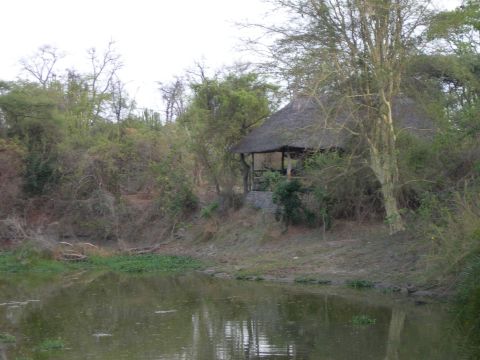
My tent at Mvuu
That first night I was sure a herd of elephant, or at least two or three hippos were in front of my tent, because the splashing was so loud and continuous. But when I peered over the railing with my torch, I saw a shoal of medium-sized fishes, silver in the moonlight, leaping in a perfect arch out of the river. Behind them, neck curved in another perfect arch, were the jaws of a large crocodile, which gulped the lot in mid-air.
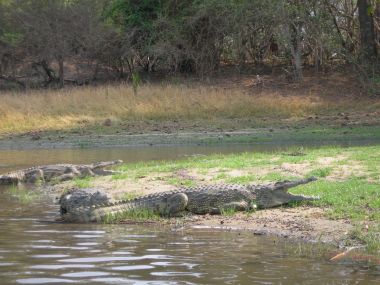
Huge crocs line the banks of the Shire river
This all went on till dawn when one of the best bird choirs in Africa erupts in splendid song. Mvuu is the place for bird specials, so if that Angola Pitta, Bohm’s Bee-eater, Palmnut Vulture, Spurwing Lapwing or Collared Palm Thrush has been evading you, you’ll practically fall over them in and around this delightful little bush camp.
Lake Malawi is the third biggest lake in Africa and has more species of fish than any other lake in the world. On an island in the middle of this lake stands a huge Anglican cathedral dedicated to St Peter, whose statue faces the lake, holding the Keys to the Kingdom, whilst a distinctly African-looking cockerel stands at his feet.
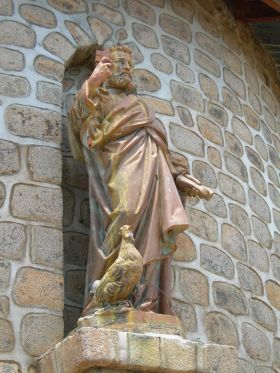
St Peter guards the huge Anglican cathedral in the middle of Lake Malawi
The island is called “Silikoma” which means “Sweet land”, but the site where the cathedral is built is known as Chipyela – “The Place of Burning”. It was here that the first missionaries witnessed witches being burnt at the stake. The foundation stone of this cathedral – the largest and most beautiful in central Africa – was laid in 1903, and the structure was completed in 1905. David Livingstone, a frequent traveller here, in 1857 persuaded the Universities Mission to Central Africa to form a mission in this area of Nyasaland. And so they did. The story is a familiar one - unwilling tribes made war on the early missionaries, bishops keeled over with malaria and other tropical diseases, one drowned…but the faith and the cathedral remained, and today, over 1 000 people and three choirs worship every Sunday in the magnificent church with its antique silver plate, eight altars, stained glass windows, handcarved soapstone pews, and soaring rafters.
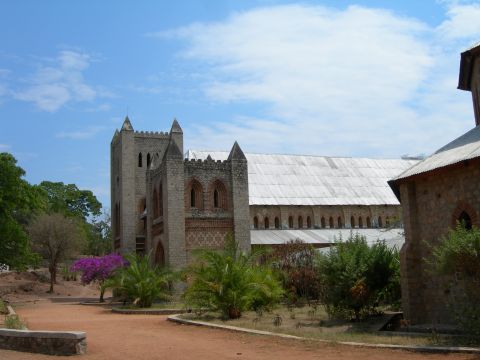
St Peter's Anglican cathedral, Lake Malawi, the largest in central Africa
The early missionaries hit upon the idea of a steamer to traverse the lake and chase up their converts. If you’re a seasoned African traveller, try a 24-hour journey on the Ilala Ferry, a charming old rustbucket that serves as a kind of bus service around the lake. (The timetable is pure fiction, so just be in the vicinity of Monkey Bay at any time on a Friday morning and slide into African time.) This is quintessential Africa as, at the various ports of call, you watch the semi-organised chaos of people, goods and livestock being loaded and off-loaded. Or sit on the top deck and watch the waitresses gyrate to rented videos of West Africa’s pop idols.
Likoma Island harbours 4000 souls, and the most stunning lodge in Malawi, Kaya Mawa – a cross between a medieval keep, or a Lord of the Rings mini castle. As one guest remarked, “this is the sort of place where the baddies would hang out in a James Bond movie!”
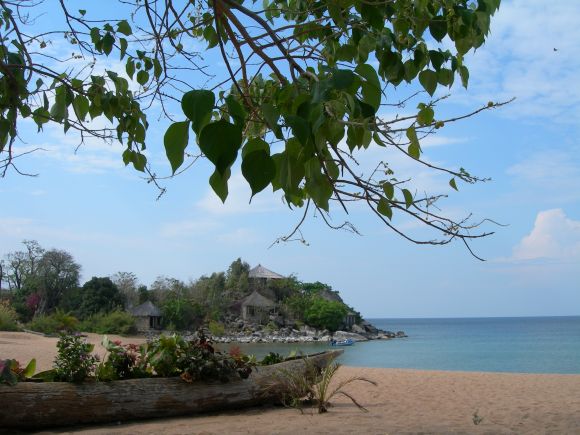
Kaya Mawa on Likoma Island, Lake Malawi
But although it's an upmarket lodge, this is no enclave tourism where visitors are off limits to locals. At dawn the women are filling their buckets and washing their pots on the beach, and the sails of fishing boats meander past throughout the day.
One evening, thousands of migrant fruit bats arrived from further up Africa to make the most of the mangos in season. Twittering, pushing, nudging, whispering and grooming, they hung happily upside down in a giant baobab tree as the day began to slip away into the night and the dawning of another uniquely Malawian day.
If you haven’t yet been to Malawi, then you’ve a treat in store. It may be one of Africa’s smallest countries, but it’s also one of the friendliest and least discovered countries.
